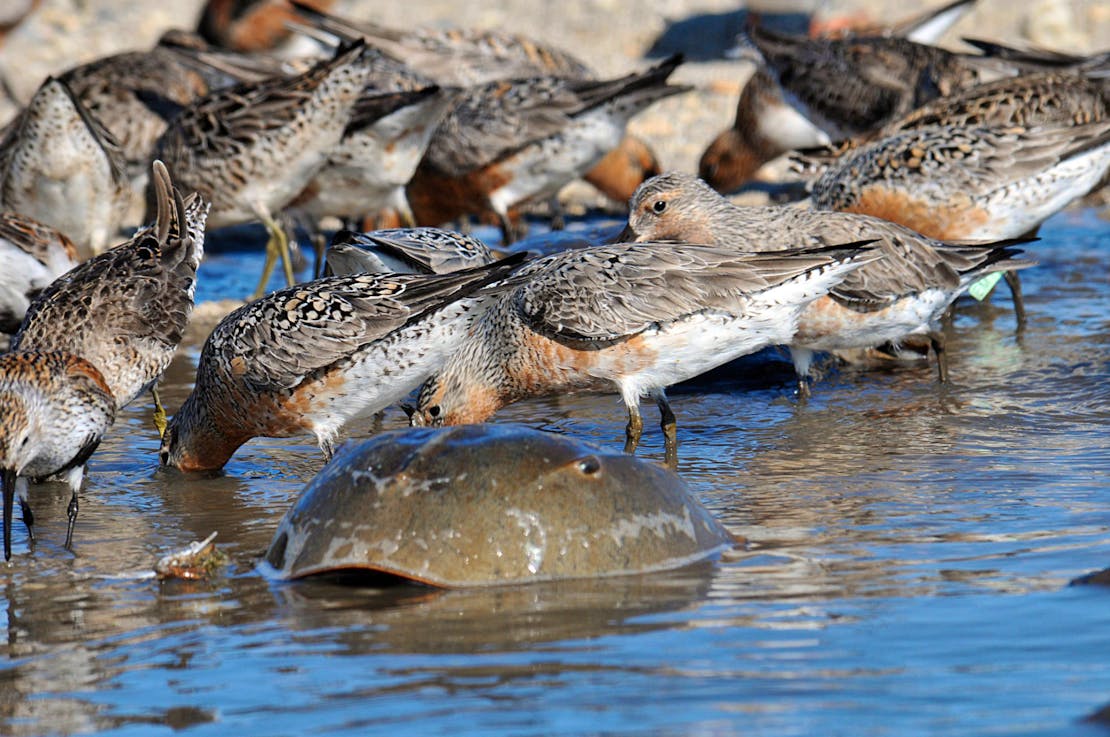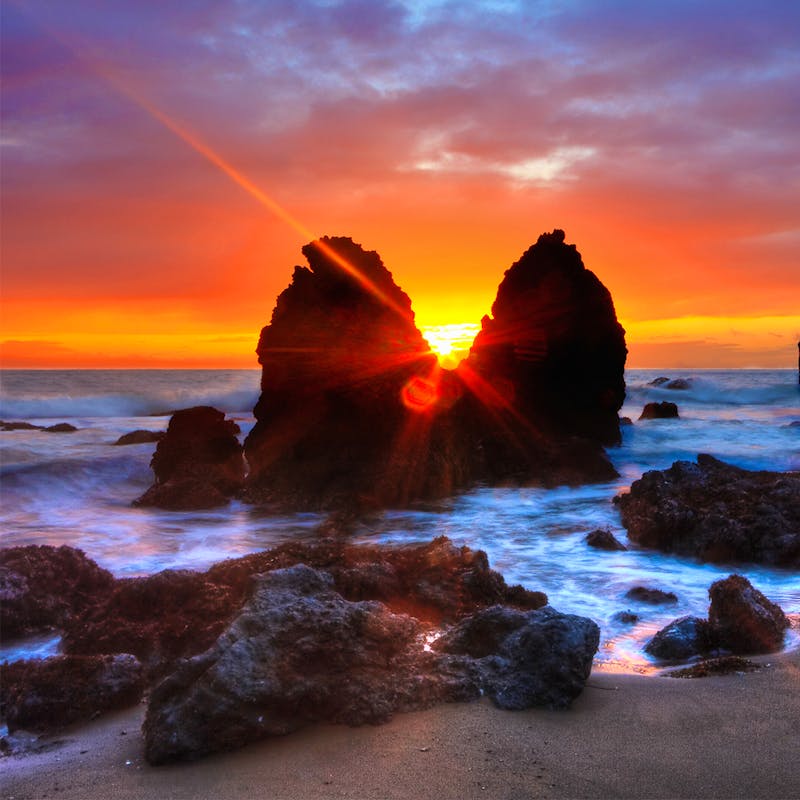TweetWe applaud the commission’s decision not to allow a female horseshoe crab harvest this year, especially given how depleted the horseshoe crab population remains after decades of rampant exploitation.
Conservation groups commended today’s decision by the Atlantic States Marine Fisheries Commission to forego a 2024 bait harvest of female horseshoe crabs in Delaware Bay, where the crabs’ eggs fuel a globally significant stopover habitat for migratory shorebirds. Today’s decision avoids worsening conditions for shorebirds including the red knot, which is listed as threatened under the Endangered Species Act and depends on crab eggs to complete its annual migration from as far south as Tierra del Fuego to its breeding grounds in the Arctic. The commission had considered a proposal to allow for the harvest of 175,000 female crabs after a 10-year prohibition.
“We appreciate that the ASMFC was risk averse in their decision not to authorize a quota for harvesting female horseshoe crabs,” said David Mizrahi, vice president of research and monitoring at New Jersey Audubon. “Given the significant flaws, unsubstantiated assumptions and ambiguous results of the current Adaptive Resource Management modeling framework, any decision to include females in the 2024 horseshoe crab harvest would be irresponsible.”
Last year, the commission decided not to authorize a bait harvest of female horseshoe crabs in Delaware Bay in response to over 34,000 public comments opposing it. However, this year, the commission conducted a stakeholder survey of an undisclosed group hand-selected by the body on whether to harvest female horseshoe crabs, which conservation groups worried would be used to justify moving forward with the proposal. Only 40 people responded to that survey, and of those only 17 supported a female harvest. Earthjustice, New Jersey Audubon, Defenders of Wildlife, and other conservation groups have repeatedly sounded the alarm over the potential for harm to the Delaware Bay ecosystem if the commission were to authorize a female harvest.
“We applaud the commission’s decision not to allow a female horseshoe crab harvest this year, especially given how depleted the horseshoe crab population remains after decades of rampant exploitation,” said Jane Davenport, senior attorney at Defenders of Wildlife. “There is still time to save the red knot and other shorebirds that suffered the consequences of this overexploitation, but not if the commission prematurely declares ‘mission accomplished’ on horseshoe crab rebuilding.”
Although the commission decided to continue a female harvest prohibition for another year, conservationists continue to be concerned over the commission’s reliance on a flawed computer model to develop annual harvest recommendations. A recent independent analysis demonstrated severe flaws in that model, a problem compounded by the fact that modelers have manufactured data to fill in key model inputs for most of the last 10 years to justify higher harvest proposals. At today’s meeting, one member of the commission appropriately acknowledged that no resumption of the female harvest could be justified for the next several years.
“We are pleased that the commission exercised caution in the face of uncertainty and the potential for serious harm,” said Ben Levitan, senior attorney for Earthjustice’s Biodiversity Defense Program. “However, the commission needs to end its annual practice of considering a female crab harvest based on a flawed computer model. The fate of red knots should not be put on the line year after year.”
For over 75 years, Defenders of Wildlife has remained dedicated to protecting all native animals and plants in their natural communities. With a nationwide network of nearly 2.1 million members and supporters, Defenders of Wildlife is a leading advocate for innovative solutions to safeguard our wildlife for generations to come. To learn more, please visit https://defenders.org/newsroom or follow us on X @Defenders.
Media Contact
News

Defenders Calls on Service to Pull Out from Habitat-Degrading Land Swap







